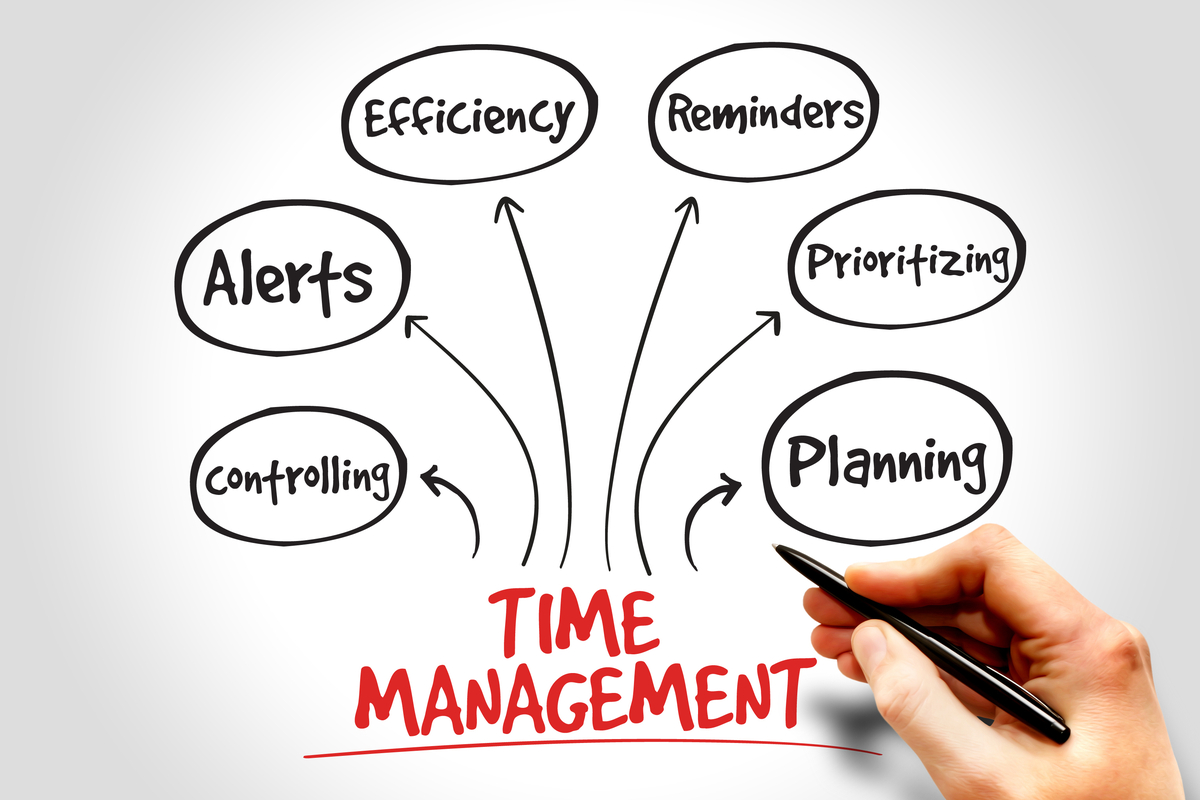Strategic objective vs Personal objective
In order for a business to survive long-term, it must routinely determine what it wants, how they are going to get there. This is no easy task as it takes a great deal of thought and time.
However, without it, the business will flounder and likely not succeed. Since I am here and training you, that means that the owners have in fact spent the time and energy to create a strategic objective for their company.

Just like the business, you too need to determine what you want and how you are going to get there. In order for the business to be able to achieve the strategic objective, it must have people who can help make the strategic objective a reality.
This begins with self-reflection of what you want in the next 6 months, 1+ years, 5+ years, and 10+ years out. I have been helping people for more than 40 years to go through this same exercise.
I have seen the power of this exercise first-hand hundreds of times. If the company helps you achieve what is important to you personally, the company will in turn achieve its objective.
No business can be successful without people. Helping people achieve their goals and dreams is paramount to the success of the company.

What do you want?
This is a question that many of us ask ourselves when beginning a new job. Personal objectives are essential to consider because it helps determine what kind of career path we choose. You may think this only applies to younger generations starting out, but it is just as important to an employee who has 10 years left to work. The priorities are different, but the purpose of setting goals is the same.
Personal objectives help provide direction for our lives and can also be used as smart goals. Here is an article about how personal objectives can be set, why they are essential, and tips on goal setting!
It is ok to think about yourself
To put your interests first may seem counterintuitive, but it’s something that many of us have done daily. You obviously shouldn’t sacrifice other people to fulfill yourself or “take” from them when they cannot provide what is needed for themselves, although these things are significant.
It just means focusing more energy on making life bearable by being content with who we are ourselves before looking externally at others’ needs.
It is a verifiable truth that individuals with poor self-worth don’t usually display an overflowing abundance of generosity to others as they feel taking on the responsibility would be beneath them.
For example, if someone thinks this way about themselves, it will take some time before they can give compliments. They are constantly comparing themselves to others. This makes them unwilling to give anything back.
Have to love yourself before you love others
You can’t get ahead if you don’t first place your own needs on an acceptable level. True success is about what matters most to us, and that starts with self-love!
We all seek acceptance from those around us; it’s human nature for some people to just want more than others. You reap the benefits of this sentiment by doing something nice or saying hello when someone crosses paths.
Many people do not notice small gestures, but they are essential. They make up our everyday lives in ways that are big and small. Friends and loved ones can offer encouragement without even realizing they’re doing it.
Throughout the review of the main components of creating your personal objective, there is one structure to always keep in mind, SMART goals!
What are SMART goals?
The acronym is a popular way to set reasonable, measurable, and achievable goal criteria. It was designed based on five basic principles:
(S) Specificity in what you want
(M) Measurability so it can be compared with success later
(A) Achievability means there’s hope we’ll achieve our targets even though they might seem difficult at first
(R) Realism tells us the chances of meeting these objectives aren’t unrealistic, but only time will tell if they succeed!
(T) Timebound so we can put deadlines on our goals and work towards them as quickly as possible
While we walk through your personal development, keep the SMART goals structure in mind as it provides a solid framework to achieve those goals you set forth.
What are personal objectives?
A personal objective is a factual statement of what you want to achieve. They can be centered on anything from improving your work ethic or attaining specific goals. A personal objective applies to anyone in the company whether just starting out or toward the end of your career.
Goals within your personal objective should always have consequences that affect the individual specificity, whether directly or indirectly.
It is important to make sure the goals are good for you, and that they are SMART, specific, measurable, achievable, realistic, and time-based.
Why are personal objectives important?
Personal objectives are the basis for personal growth and achievement. The more energy you put into your goals, the better off all aspects of life will be when they’re accomplished!
Your success in achieving these things can also motivate others around you who might need some encouragement or inspiration with their endeavors.
Achieving an important milestone is not just about what’s happening inside us; it becomes even more fantastic thanks to how proud we feel knowing that our efforts have had such lasting effects on other people too.
Personal objectives revolve around your personal goals
Achieving your personal goals is exciting and fulfilling. Setting personal goals helps us grow as people. We can learn new skills to make us successful professionals.
This will also make our families happy. It’s important to consider both sides, personal life, and professional life. It’s not just one side of life at a time that is part-time, but rather an integral part of our lives like it should be! A personal objective should capture both.
A goal sets out on its journey toward something you want more than anything else. Progress is made possible by setting specific objectives towards positive results through purposeful action taken daily until achieved at last.
This process makes each day into your finest hour when all elements come up roses in the end. Personal objectives are about what is good for you, so never forget to consider them when setting goals or making life changes!
You will know when your personal objectives are accurate when your motivation will seem to come out of nowhere. This feeling will get you excited about the results. Having those goals front and center knowing the results are near made work fun and exciting versus going to work simply for a paycheck.
Let’s take a look at the elements of your own personal objective.
8 Components of creating a personal objective
This module will review the eight main categories that I have found over the years to have the most meaning and benefit to employees and their workplace. Those eight categories are:
- Financial and income goals
- Professional growth goals
- Educational goals
- Goals for your family
- Goals for major purchases
- Debt reduction and savings goals
- Travel goals
- Retirement savings goals
Each of the categories has its unique purpose. If you have others, you are more than welcome to add them. There is no right or wrong answer. This is simply a guide with ideas to get you thinking about what is important to you.
On the very bottom of the Holt Personal Objective Worksheet, you will find “Other” for things that are important to you but maybe didn’t fit in the other categories.
Let’s review each component of the personal objective so you understand why it is crucial and some ideas to create your objective.
1-Financial and income goals
Financial goals should be in line with your values and life aspirations. They can be short-term or long-term, depending on how you want to look at them.
They all work together as part of a holistic financial plan that will help give direction for what is essential financially during different points throughout your lifetime.
A younger person just starting out will have different priorities than someone who is middle-aged realizing retirement is not that far off. So depending on where you are at in life, it is best to be realistic at the beginning about what you want and how much effort will be required to get there.
Personal objectives can help with this process by considering both short-term or long-term, depending on your current financial situation and how it may or may not change in the future.
Set a goal of 5%?
To get you started, consider setting the target of increasing your income by five percent this year. If you’re working for a company or corporation and not eligible for overtime pay, then it may seem unattainable.
Even if you think it is not obtainable, just setting a goal will make you more accountable than not having the plan at all. If you are just starting out, do some research on career paths. Use something like Glassdoor to see what type of salaries are common for the types of positions.
Most businesses offer an opportunity each year to be reviewed based on your performance. When interviewing for a new job, be sure to ask how often you are eligible for a raise and the amount you may qualify for.
Short-term
You may have set your sights on a long-term goal, but it’s important not to forget the importance of short-term goals. Without them, you won’t be able to get anywhere, and even though they might seem small in comparison, this will only hurt longer term success! You can start by following these steps:
- If you are just starting out, make sure you create an emergency fund – save up at least $1000 for anything unexpected like car repairs or medical emergencies.
- Make sure that any debts are paid off each month with enough leftover, so there aren’t demands on cash flow when we expand our budgets later in life.
- Establish more regular saving routines to save for a down payment on your first home, fund your retirement or pay for that bucket list vacation.
Long-term
Long-term goals are just as crucial to your financial future but can be more complex than short-term ones because they require you to plan for the long term.
Grow your savings (emergency funds) as life will get more expensive and complicated once you own a home or have children. However, don’t neglect to create an emergency fund before moving on to other long-term savings or investment strategies.
Hence, enough money is set aside if something unexpected arises, like a medical emergency or job loss. Financial goals to fund your retirement are essential for older adults, and the most important thing is to save enough to retire comfortably. Getting started early on retirement and making it a priority is important for your future.
You should aim at saving 10% – 15%. Still, it’s best to adjust this number according to what feels right within reason because everyone has different priorities when making their own choices.
2-Professional growth goals
What are professional development goals?
Professional development goals are a way for you to set your sights on the future and clarify what new skills or experiences will lead there.
Whether it’s just short-term or near-term goals that need to be met for things like certifications and licenses, longer-term plans such as taking classes to get your MBA at night happen over time.
How do you set professional growth goals?
Those are not entirely different from life’s dreams. Here is a quick guide for creating an effective, professionally successful plan.
Start with the big picture
Only when aware of the end goal can one develop appropriate professional-development plans. Where are you in your career?
Starting out, then you want to figure out some logical steps to where you think you may want to be. Don’t worry about the details or that you may not like what you choose. Just pick a direction.
If you’re in the middle of your career, you should have a better grasp of where you want to be with some experience under your belt. However, you still need to choose where you want to go.
Your perspective will change, but there is still a big picture view of your future, you are just in a different place with different priorities.
Break it down
Break down your big picture goal into smaller steps. Make shorter-term or weekly mini-goals that help towards long-term success.
You may decide along the way to change the big picture and that is ok. That is a natural progression of life and should be expected.
Examples of professional development goals
If you need some ideas to get you started, the following examples will help. Start with those fundamentals. Afterward, all you have to do is slowly start moving further toward specific goals long term.
Learn how to work with others
This is an overall goal, but it’s not always successfully implemented in real life. Competent communication skills come only through practice so take any opportunity you have at school or your job to improve. Improve yourself daily, and don’t shy away from asking for help.
Learn how to do another job at your company
Employees who are able to do multiple jobs in different departments are considered matrix employees. Maybe you work in marketing but have an interest in Accounting. Let your team leads know that you want to learn other things.
Matrix employees are ideal with the ebb and flow of business. Seasonality may put extra demands on the Accounting department, but maybe the Marketing department’s work is slowing down.
There are typically many other positions that you can learn and compliment not only your employability skills at your current job, they greatly expand your resume if for some reason you end up in another.
Improve your time management skills
This is another overall goal that people try to implement, but usually, they fail because it requires a lot of practice and commitment. If you want the results immediately, the one thing I can advise for sure is to plan everything so you can manage your time more efficiently.

Personal development goals can help with this because you will learn how to manage your thoughts, time, and tasks better, making you more organized.
Polish your presentation skills
Manners and body language don’t just affect how we communicate with others, but they also play a big part in our presentations.
Improving your presentation skills can help you improve the above areas to feel confident about yourself and present things properly.
Improve your interpersonal communication skills
If you know how to communicate with others properly, it will be reflected in your communication and the relationship that people have with you. Communication skills in the workplace are essential, so take time every day to improve yourself and work on interpersonal skills.
You can do this by learning new things or simply practicing at home when there is no pressure. Communication skill improvements are significant because they help you to build new relationships and work with other people.
3-Educational goals
Educational goals Examples
Your educational goals will be individualistic. You can list your plan even after you have finished everything!
For example, if there is a formal schedule, you may decide to adhere to that list at any moment you’re not able to meet that plan.
Remember that personal, educational aspirations become a much more successful reality when expressed as an educational goal.
Go back to school for your passion
It is rare to find a person in the 21st century who started out in one place in their career and didn’t end up in another, sometimes in the complete opposite direction of where you started out.

If you have been in the job market for any reasonable amount of time, you know that things change. If you are starting out, know there will be challenges and changes in the course of your life that you never expected or thought would be a reality.
But it doesn’t really matter where you are in your career, it is never too late to learn something new. With all the available options online today, you rarely even need to leave your house or go to school full-time. Go for the fun of it, go and learn your passion.
Get accepted into a graduate program
The goal of graduate school is perfect because it enables you to divide up the goals into small steps. You may have worked through these measures to get an impressive GRE score – getting good references from the professors.
Learn a new language
Setting out on an ambitious second language study program is a long-term goal that allows you the ability to get in contact with many people and build strong relationships with the people you know in your life and in.
Once you conquer your new language, plan a trip and immerse yourself in the language. Setting a travel date 1-2 years in advance will put a timeline and keep you focused on achieving your goal.
Earn a new certification
There are literally thousands of online classes in just about every software. Since most of us use only 10% of the capabilities of most software, there is always room for improvement.
Find the software and technology that your company uses and learn more about it in your free time. This will not only help you in your current position, but a certification in something you did on your own can really stand out for your next job.
4-Goals for your family
Family goals are essential for the success of any family. They can be used to identify and address challenging issues, so they must be consensual, with all parties working together as a team.
A typical list might include financial resources or personal accomplishments like education attainment and time spent together outside work hours!
Family goals
Family goals are important because they inspire you to spend more time with your family. Personal Family Goals can be anything from spending quality time together, seeing your grandbabies more often or taking an annual vacation with all of your family. Family goals are all about family.
Each goal will have its specific plan to become a reality which is why it’s so much fun when setting personal family goals. Include your spouse or kids in your goal setting which will make crossing them off once accomplished even sweeter!
Fitness goals
Setting Personal Fitness goals is a great way to get yourself motivated because you can put your plan into action and watch it grow as you work towards more considerable achievements.
Family health goals
Another example may be setting some health goals for your family. Take a look at the eating and exercise behaviors of your family and see where you can improve. Getting a plan right in the first place can be challenging for all people but working together helps keep you all going in the right direction.
Some examples of family health goals include joining a health club, taking family walks after dinner, creating a household screen time budget, or participating in a 5k run-walk.
5-Goals for major purchases
Setting goals for significant purchases is crucial because it is a smart goal that you can work on at any time and with the money in your bank account.
You may set an income point or require some other trigger to take action like “when I find something new,” which will give you more motivation when making purchases, especially if it’s for family goals such as buying a house.
Is the purchase a need or a desire?
You need a car to get back and forth from work (assuming you aren’t remote), but do you want that shiny red sports car or do you need reliable transportation? Often we get wrapped up into what we want instead of what we need.
This mindset is what causes good people to get in over their head with automobile purchases like the situation above. Focus on what you need, not what you want.
How much money can I afford to spend?
Maintaining an accurate budget each month is the best way to understand where each dollar goes. Within the budget, you can efficiently allocate a certain amount per month to savings or a separate line item created specifically for what you want to purchase in the future.
What is this purchase going to cost me?
When you have a specific idea of the price tag for an expensive item, it’s easier to determine whether or not spending hundreds or even thousands is an intelligent move. If you plan on financing your purchase over time with monthly payments, be sure that the total amount paid won’t exceed what you can afford by the time the charges are finished.
Write down what you want. This is an essential step as it will allow you to visualize all of those wants, needs, and desires that we talked about earlier clearly to see them more quickly, which will help with actually achieving them!
Examples of major purchases
Getting married
As of 2021, the average cost of an American wedding is over $22,500. This is a major purchase for any couple. The days of Mom’s and Dad’s fully funding weddings is a thing of the past.
While they may be able to help, having funds in place to make the day exactly as you want is important. If Mom and Dad can contribute, then you simply have extra savings to get you started in your life together.
Buying your 1st or 2nd home
Many young adults get behind it and procrastinate and start saving for their first household. Maybe you are later in your career, are ,debt-free and thinking about that 2nd home on the lake.
Planning ahead for a downpayment will be an important step to qualify for any 1st or 2nd mortgage. Think about opening up a savings bank account so you can plan for a down payment on your home.
When buying your first home (or 2nd home), remember needs and wants. Just because the bank tells you that you can afford a $200,000 home during pre-qualification, doesn’t mean you have to spend $200,000.
For your 2nd home, needs and wants still apply. While you will likely have a firm handle on what you can afford, it is still easy to get lost in what the bank thinks you can afford versus what you really need.
Do you need lots of bedrooms or just a small cozy space to get away from the hustle and bustle of life? If you can get all of your needs met for $150,000, start there. Then if you can’t find something at that level you can move up from there.
Starting a family or helping your grandkids
You are married, in your new home and now you are considering children. Each step of your life’s progression brings new costs, so saving is such a great practice to adopt all through your life.
Having a child brings about numerous expenses which will last throughout the lifetime of your child. While it is a given that babies and small children need adult care, you must recognize that Adult children can sometimes need help.
If your children are grown, then grandchildren will soon be on the radar. You have already lived through the chaos of raising small children. You know the value of some help here and there that would really make a difference in the day-to-day lives of your kids.
6-Debt reduction and savings goals
Establish the habit of saving money
You can continually improve by spending less and not more. Choosing to live frugally will allow you to spend more of what’s most vital to you. This is a universal truth that applies to all stages of your career.
For example, you can cut or eliminate spending on unnecessary expenses such as food delivery or using a rarely used gym membership by cooking at home or an outdoor exercise session.
Short- or long-term savings goals and their importance
Create your savings plan and determine the time frame. Bigger purchases will require time to save for. After determining your goal, rank all the items according to importance. Remove all the essential things from your top list, or move your objectives down the list if your list is straightforward.
Keeping money in your bank account without plans may not help you reach your goals. Make it clear what your goals would be by naming them. It will help you maintain a soundtrack of the savings goals.
Younger Generation? Create an emergency fund…
An emergency fund is money you use exclusively for unplanned expenses. To start with, $1,000 is a great goal. When you achieve that target, you’ll want to develop the funds to cover the more significant challenges of your finances.

Mid-career or Older, Reduce debt, pay off credit cards
Some people suggest paying off credit card fees first or ignoring the interest you have. Another method would be to pay off the debt in the order of the smallest to the largest. One other option is the negotiation and payment of a percentage of the obligation to reduce this debt.
Pay off student loans
Student loan debt can add massive stress to your monthly finances. It may be more long-term, but paying extra toward your debt each month will get it paid off sooner. Unfortunately, the way these loans are structured, it can take longer to pay these types of loans off than a mortgage on a house.
Paying it off sooner will save you thousands in interest and once paid off will lead to greater savings in the future by not having that debt in place. Refinancing is among some ways to repay your existing loans.
But be careful: If you refinance federal student loans with a private lender, you could lose some of the benefits of federal student loans, such as income-based repayment and forbearance from reimbursement.
Increase retirement savings
One easy way to increase retirement savings is by contributing to your employer’s 401(k) plan, especially if there is a match on their part of the money you are paying into it. Younger workers should make it a goal to match what the employer is putting into the 401(k). If you are older, you should look at putting more into the funds especially if you got a late start.
This will help ensure that you get the most out of your investment returns each year without having to worry about fees associated with your investment options.
7-Travel goals
On average, nearly 70 percent of Americans have a bucket list—travel goals makeup half of those lists. Around 26 percent of American adults say money is an obstruction of achieving their bucket list goals.

Why should I set travel goals?
Sometimes, getting away from the day-to-day stress from work can be very advantageous to your physical health. Here are some ways that travel can contribute to your well-being that you may not have thought of:
Travel enhances creativity
Immersing yourself in an unfamiliar culture allows you to integrate new ideas and value concepts into your new individual identity.
Travel builds character
Travel gives you a chance to try something new. Even if you stick with your comfort zone while traveling, you’ll be able to take in new experiences.
Travel improves focus and productivity
Going on vacation can increase productivity in the office. Simply watching nature enhances your attention. Immersion in new situations keeps the mind sharp. If you can’t disconnect from your work, you will likely experience burnout.
Travel makes you happy
Expedia estimated that 89 percent of people on vacation found significant stress relief within two days of going on vacation. Getting time away is critical to recharge, refresh your mind and enjoy yourself without the daily stress related to work.
Travel may be required to see your children (and grandchildren)
If your kids do not live nearby, setting goals to see your children more than once per year would be a perfect goal to set. Especially if you have grandchildren. They grow up so fast. Traveling more often to see them would be an excellent personal goal for your personal objective.
8-Retirement
Tell me the best way to plan for retirement?
Social Security income will just replace 40% of the average worker’s salary after they retire. A survey published in May estimated that about 45% of single retiree Americans count Social Security to contribute about 90% to their retirement earnings.
What’s a good investment strategy to prepare for retirement after working or retiring? Most of those people who genuinely enjoy their retirement do so partly thanks to having a retirement plan that has been in place during their working years.
Retirement 101
Today’s working professionals face challenges that were not previously addressed by previous generations. Life expectancies can be long, making it more difficult for you to pay more and last longer.
Bond yields are also much lower than they used to be, so buying a few fixed-income securities cannot produce double-digit returns.
This is compounded by changing from defined benefit pension schemes to defined contribution plans which are more susceptible to market ups and downs.
The planning of retirement is not too burdensome, but you need an individualized road map that adapts to your situation’s circumstances.
Things to keep in mind
It is a good idea to put retirement savings as a priority on your budget, just like food and shelter costs. Set it so that every month the funds in your bank accounts are taken into your investments.
With a separate emergency account, you can meet all unexpected bills without tripping over your retirement plan. Ideally, you reach age 65 debt-free. This means credit card debt- exceptionally high-interest rewards cards — car and mortgage loans, student loans, and other essential loans.
Get started early, take advantage of compounding
Another reason for investing is to exploit this powerful compounding technique. Compound growth is when gains increase over other improvements. The investments that you hold at the time of your choice will be compounded year after year.
The earlier you get started, the bigger the impact will be on your future retirement. But it is also never too late to start!
Understanding retirement options
What is a defined benefit plan?
Past generations relied more on the employer to provide for their future retirement. With a defined benefit plan, a worker receives a fixed gift at retirement.
Defined benefits plans tend to be more expensive and complex for employers to administer, so some companies offer alternative retirement plans instead of 401(k)s.
Employers benefit through 401(ks) for retirement. They are providing a stable income and are more reliable for retirement savings if necessary.
A survey by Willis Towers Watson showed that only 14% of the Fortune 500 firms offered defined benefit plans to employees in 2019. That’s down from 59% in 1998, according to an industry survey.
With that decline, it is clear to see why the employee needs to take on more responsibility for getting their retirements funded. Here are the most popular options currently offered by most private companies.
Roth 401(k)
For a Roth 401 plan, contributions are made in after-tax dollars instead of pre-tax dollars. When making withdrawn retirement benefits, your income is not taxed. If you are likely in this age bracket lower than before retirement, a Roth is one of the more advantageous options for now.
If your employer has provided a matching contribution of 401(K), you still qualify for the matching contribution. But due to federal guidelines, this amount will be stored in the traditional 401(Council) for you.
The minimum age for participation can not exceed 21 and cannot require more than one year’s service on a minimum basis.
Traditional 401(k)
If a company offers 401(k) accounts, you can contribute with the money that goes to it before taxes. Your investments grow on tax-deferred terms. That means that if you make withdrawals in retirement, you do not have any tax obligations about what you invested or its return.
Employers might encourage employees by matching a portion they have received. In 2020 and 2018, the contribution cap is $9500 per year, or 100% of your compensation to be reduced.
Any employer contributions don’t qualify towards this limit. If you are older than 59, you can still contribute up to $6500.
457 b) plan
A 457(b) plan allows you to put pre-tax funds from your paycheck towards a retirement account. The bank accounts are tax-deferred, so you don’t pay any tax at the time of the withdrawal until withdrawal reaches the retirement age.
In 2020 and 2021, you can contribute a maximum of $12,000. The 437 plan lets a Roth account function like a standard retirement plan. You can contribute 80% or less of the total salary by 2020 or less in 2021 or more by 2020 and subsequently in the future.
Conclusion
The first step to accomplishing your personal objectives is using the Holt Personal Objective Form and figuring out what you want for yourself.
You can then use that information as a guide to create goals, identify tasks needed to achieve those goals, and create an action plan with specific timelines on how long it will take before you reach these milestones.
If this sounds like too much work or feels like something only people who are successful in life should be concerned about (because they know what they want), think again!
Your ability to make good decisions depends largely upon your self-worth; if you don’t value yourself enough because of all of the negative things going on in your life, success won’t come easy.



